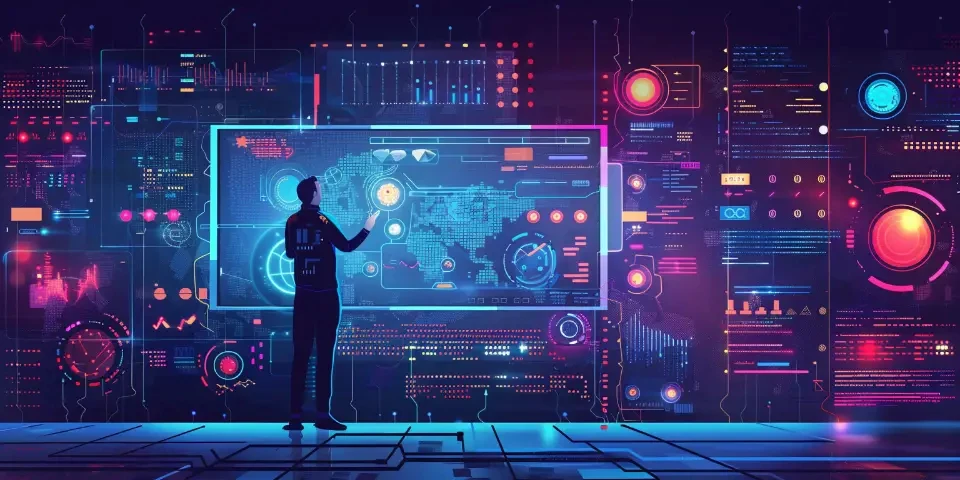AI Poised for an Evolution Meeting User Demand
Artificial Intelligence (AI) has come a long way since its inception, and it continues to evolve rapidly. With advancements in machine learning, natural language processing, and data analytics, AI is poised to revolutionize multiple industries and meet the increasing demand from users. Let's explore the various aspects that highlight AI's evolution and its ability to cater to user demands.
1. Enhanced Personalization
AI has made significant progress in understanding user preferences and delivering personalized experiences. Through the analysis of user data, AI algorithms can recommend tailored products, services, and content. Whether it's suggesting movies on streaming platforms or learning user habits to automate home devices, AI is adept at providing personalized solutions.

One example is Netflix, which uses AI algorithms to analyze user behavior and provide personalized movie recommendations. This level of personalization enhances user satisfaction and keeps them engaged, leading to increased user retention.
2. Natural Language Processing
Natural Language Processing (NLP) allows AI systems to comprehend and respond to human language. This aspect of AI has witnessed major advancements, leading to improved virtual assistants and chatbots that can understand and respond to user queries more accurately.
Companies like Amazon have integrated NLP into their virtual assistant, Alexa, enabling users to interact and control connected devices using voice commands. The constant improvement in NLP helps bridge the gap between humans and machines, making interactions more seamless and reducing the need for manual input.
3. Smarter Decision-Making
AI's ability to analyze vast amounts of data in real-time enables smarter decision-making. Through machine learning algorithms, AI can identify patterns and make predictions or recommendations based on the analyzed data. This empowers businesses to make data-driven decisions and optimize their operations.
For instance, retail companies leverage AI-powered demand forecasting tools to predict sales and manage inventory effectively. This not only improves customer satisfaction but also reduces costs by minimizing wastage.
4. Improved Customer Service
AI has revolutionized customer service by automating and streamlining support processes. Chatbots, powered by AI, can handle repetitive queries, provide instant responses, and even escalate complex issues to human agents when necessary.
Airlines, for example, are using AI-powered chatbots to assist travelers with flight bookings, boarding passes, and FAQs. The self-service nature of these chatbots reduces wait times, enhances customer satisfaction, and frees up customer support resources.
5. Enhanced Cybersecurity
With the increasing number of cyber threats, AI has evolved to bolster cybersecurity defenses. AI algorithms can identify anomalous patterns, detect potential threats, and even respond in real-time to mitigate cyber attacks.
Security companies utilize AI to analyze network traffic and identify any suspicious activity that may indicate a breach. This proactive approach allows for quick incident response, reducing potential damage and safeguarding user data.
6. Autonomous Vehicles
AI has transformed the automotive industry by enabling the development of autonomous vehicles. Self-driving cars utilize AI algorithms to interpret sensor data, make navigation decisions, and ensure passenger safety.
Companies like Tesla have pushed the boundaries of autonomous vehicles, incorporating AI-powered features such as self-parking and autopilot. The evolution of AI in this domain is set to revolutionize transportation, making it safer and more efficient.
7. Healthcare Advancements
The healthcare industry has experienced significant advancements with the integration of AI. AI-powered algorithms can analyze medical images, assist in diagnostics, and even predict disease progression.
For instance, AI algorithms have been trained to detect early signs of breast cancer in mammograms, helping doctors make more accurate diagnoses. Additionally, AI-powered chatbots are being used to provide basic healthcare guidance and alleviate the burden on medical professionals.
8. Ethical Considerations
As AI continues to evolve, there is an increasing focus on ethical considerations. Organizations are grappling with issues such as bias in AI algorithms, privacy concerns, and the impact on job markets.
It is crucial to ensure that AI systems are fair, transparent, and accountable. Regulations and guidelines are being developed to address these concerns and mitigate potential risks associated with the widespread adoption of AI.
Frequently Asked Questions:
1. Will AI replace human jobs?
While AI may automate certain tasks, it is more likely to augment human capabilities rather than replace jobs entirely. AI can handle repetitive and labor-intensive tasks, allowing humans to focus on complex problem-solving and creativity.
2. How does AI protect user data and privacy?
AI algorithms play a crucial role in safeguarding user data and privacy. They can detect potential security breaches, encrypt sensitive information, and identify fraudulent activities. Additionally, regulations such as GDPR ensure that user data is handled responsibly by organizations.
3. How can AI be used in education?
AI has several applications in the education sector. It can personalize learning by adapting content to individual student needs, enable automated grading, and provide intelligent tutors to support students. AI can augment the learning experience by offering personalized recommendations and feedback.
References:
- "Netflix: What's on Netflix?", available at: https://www.netflix.com/
- "Amazon Alexa", available at: https://www.amazon.com/alexa
- "Tesla Autopilot", available at: https://www.tesla.com/autopilot
